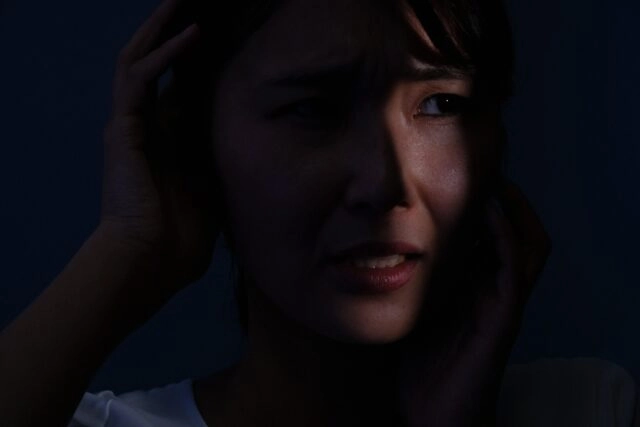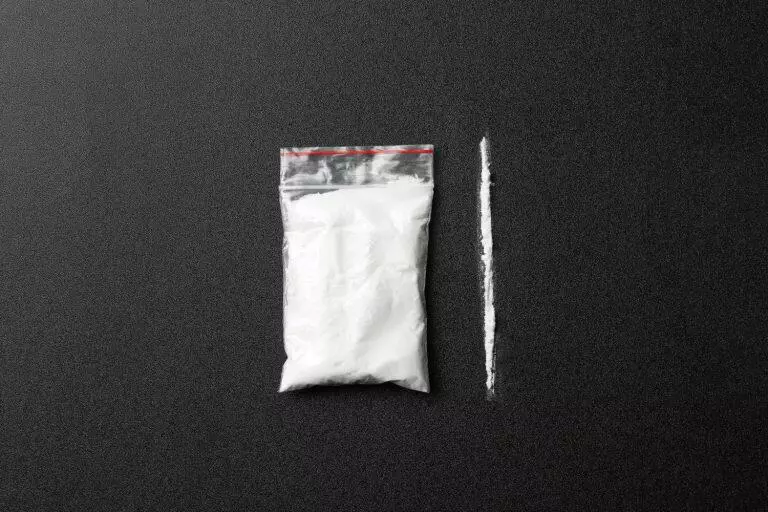Cocaine addiction is a pervasive issue affecting millions of people worldwide. The psychoactive substance has the potential to result in a destructive dependency—one that can cause significant health issues, as well as impact personal relationships, work life, and overall well-being.
Despite its dangers and prevalence, it can be surprisingly challenging for loved ones to recognize the signs of cocaine addiction. This isn’t only because they’re often subtle or easy to hide, but also due to a lack of awareness surrounding the affliction.
In this article, we’ll discuss the many effects of cocaine addiction—the signs and symptoms, health risks, as well as how Maui Recovery can help. If you’re struggling with the drug, or know a loved one who is, we hope this will encourage you to take active steps toward recovery.
Understanding cocaine
Cocaine is a powerful drug derived from the leaves of the coca plant native to South America. Its use dates back thousands of years, when indigenous cultures chewed or brewed coca leaves for their stimulant effects. However, it wasn’t until the 19th and 20th centuries that it began to be extracted and refined into the more potent substance we know today.
In its pure form, cocaine is a white, crystalline powder, and is often “cut” with other substances to increase profits. This can greatly exacerbate the risks—given the recent spike in fentanyl-related deaths, using even a small amount of cocaine can be life-threatening.
“Crack” cocaine is another example of the drug—where a rock crystal is heated to produce vapors that are smoked.
No matter what form it takes, cocaine is highly addictive due to its ability to flood the brain with dopamine (a neurotransmitter associated with pleasure and reward).
Essentially, the substance works by blocking the reabsorption of dopamine, leading to an accumulation of this neurotransmitter. This results in heightened feelings of energy and alertness, euphoria, and increased self-confidence. However, these effects are fleeting, and soon give way to unpleasant ones—restlessness, irritability, anxiety, and paranoia, to name a few.
The intense yet short-lived high often leads users to take more cocaine in an attempt to replicate or maintain the euphoric effects. With repeated use, the brain starts to rely on cocaine to feel pleasure, and this can quickly spiral into a severe addiction.
Cocaine addiction statistics
While current trends reveal cocaine abuse is down in all demographic categories, it still remains one of the highest occurring disorders in the US. Here are some key statistics outlining the extent of its impact:
- In 2019, around 2 million Americans admitted to using cocaine in the past month, with 5.5 million confirming usage within the year.
- Adults aged 18 to 25 are the primary age group vulnerable to cocaine abuse, according to the National Institute on Drug Abuse (NIDA).
- Yearly cocaine use rates have typically hovered around the 2% mark for the past 15 years.
- An estimated 671,000 individuals used cocaine for the first time in 2019.
- Approximately 12% of American adults have tried powdered cocaine, and 4% have used crack cocaine.
- In 2011, a study by the Drug Abuse Warning Network (DAWN) showed that cocaine was implicated in nearly 40% of all drug-related ER admissions, with over half a million cocaine-related emergency room visits.
- Cocaine accounts for nearly 20% of all overdose fatalities, and overdose mortality rates have been on the rise since 2012.
- In 2017 alone, nearly 4,000 Americans lost their lives due to cocaine-involved overdoses.
Signs of cocaine use disorder

A cocaine use disorder manifests in a variety of physical, psychological, social, and behavioral signs. Rather than viewing the signs of cocaine addiction in isolation, it’s essential to recognize them as part of a larger pattern.
Often, people turn to cocaine as a means to self-medicate or relieve unresolved trauma. As the addiction may be indicative of other mental health issues, a measured and compassionate approach is key.
Below are some common cocaine addiction signs:
- Frequent nosebleeds or chronic runny nose, indicative of intranasal drug use.
- Drastic changes in appearance, such as sudden weight loss or neglect of personal grooming.
- Unexplained periods of hyperactivity or restlessness, followed by crashes of extreme fatigue.
- Loss of interest in activities or hobbies that were once enjoyed.
- Irregular sleeping patterns due to staying awake for extended periods or unusual sleep schedules.
- Legal problems related to drug use, such as arrests for possession or disorderly conduct.
- Unusual secrecy or uncharacteristic desire for solitude.
- New groups of friends or associates, particularly those known to use drugs.
- Missing important personal or professional obligations.
- Sudden, unexplained mood swings or personality changes.
- Issues at work or school, such as a drop in performance, absenteeism, or disciplinary action.
- Persistent financial difficulties despite having a stable source of income.
- Unusual risk-taking behaviors, especially when under the influence of the drug.
- Physical signs of injection use if the individual injects cocaine, such as track marks or infections at the injection site.
Symptoms of cocaine addiction

The symptoms of cocaine use are manifold and can vary greatly from person to person. They tend to manifest in a range of psychosocial symptoms and it’s common for depression to surface, particularly during withdrawal. This can lead to a harmful cycle where people turn to cocaine to self-medicate against these negative feelings, thereby deepening their addiction.
Some possible symptoms of cocaine abuse are:
- Feelings of euphoria.
- The perception of superiority over others.
- Rapid, jubilant speech.
- Heightened energy and alertness.
- Noticeable mood swings.
- Increased participation in risky activities.
- Engaging in hazardous sexual behavior.
- An inflated sex drive.
- Anxiety.
- Restlessness.
- Displays of irritability.
- Manifestation of unusual, aggressive behaviors.
- Paranoia.
- Hallucinations.
- Delusional thinking.
- Depression following a cycle of excessive use and sudden discontinuation of the substance.
- Quickened heart rate or tachycardia.
- Elevated blood pressure, or hypertension.
- Constriction of blood vessels leading to the heart.
- Narrowing of blood vessels in the brain, or cerebral vasoconstriction.
- Pupil dilation.
- Harm to the nasal passages.
- Loss of olfactory sense.
- Troubles with swallowing.
- Persistent nasal discharge.
- Hoarse voice.
Dangers of cocaine addiction
The health risks associated with cocaine abuse are profound and wide-ranging. As a regular user, you expose yourself to severe cardiovascular issues, including heart disease, heart attacks, or strokes. This is mainly because cocaine significantly increases your heart rate and blood pressure, raising the risk of seizures and convulsions.
There are also many long-term effects of cocaine abuse, from impaired cognitive function to difficulty with decision-making
Smoking crack cocaine can lead to respiratory complications, such as chronic bronchitis or respiratory failure. Moreover, if you’re using cocaine intravenously, shared needles can put you at risk of contracting infectious diseases like HIV or hepatitis C.
But the consequences extend beyond physical and psychological health. Regular cocaine use can have dire social repercussions, including job loss due to decreased performance or absences, financial strain from the cost of sustaining the drug habit, and legal issues related to drug use or actions under its influence.
Your personal relationships can suffer as well, leading to isolation from friends and family. Furthermore, in severe cases, the addiction can lead to domestic violence and child neglect or abuse.
From a broader societal perspective, the illicit cocaine trade contributes to crime and violence and puts a severe strain on public health systems.
Cocaine withdrawal

After quitting any substance, you have to give your brain and body time to acclimatize to life without the drug. This can be extremely challenging so it’s essential you’re supported throughout the process. Cocaine withdrawal symptoms not only emphasize the harsh effects of the substance but also underscore the dangers of becoming addicted to cocaine.
The risk of a potentially lethal cocaine overdose escalates as former users may consume excessive amounts to combat the effects of withdrawal. Therefore, professional assistance is vital for anyone undergoing cocaine withdrawal to safely and effectively manage these symptoms.
Effects of cocaine withdrawal can include:
- Intense cravings for cocaine.
- Fatigue or exhaustion.
- Increased appetite.
- Mood swings, including irritability and agitation.
- Restlessness and inability to feel pleasure (anhedonia).
- Depression and anxiety.
- Vivid, unpleasant dreams or nightmares.
- Slowed thinking and difficulty concentrating.
- Physical symptoms like muscle aches, nerve pain, or tremors.
- Suicidal thoughts in severe cases.
Effects of cocaine overdose
Recognizing the signs of a cocaine overdose is of paramount importance due to its severe and potentially fatal consequences. Immediate action often means the difference between life and death.
Cocaine can drastically affect vital bodily functions, leading to numerous health complications that can rapidly spiral out of control. Understanding these signs not only equips you to take urgent action but also underscores the gravity of misuse and the necessity of comprehensive support.

The signs and symptoms of cocaine overdose include:
- Extreme anxiety and panic.
- Paranoia and hallucinations.
- Tremors and muscle twitches.
- Severe agitation and restlessness.
- Increased body temperature (hyperthermia).
- Rapid heart rate (tachycardia).
- Irregular heart rhythms (arrhythmias).
- High blood pressure (hypertension).
- Chest pain and possible heart attack (myocardial infarction).
- Seizures or convulsions.
- Stroke due to increased blood clotting and decreased blood flow to the brain.
- Respiratory failure, which can lead to death.
- Kidney damage or failure.
- Loss of consciousness or coma.
If you believe someone may be experiencing a cocaine overdose, it’s crucial to immediately dial 911 for professional medical aid. If the person overdosing begins to have a seizure, ensure their safety by moving potentially harmful objects out of their way to prevent injuries during convulsions. Applying a cold compress can be beneficial in reducing elevated body temperature. This swift response can help mitigate the risks while waiting for medical professionals to arrive.
Maui Recovery’s approach to cocaine abuse

When dealing with cocaine addiction, choosing a trusted and experienced treatment provider is essential. Maui Recovery has years of proven expertise in cocaine abuse treatment, and our dedicated team understands the complexities of this condition.
When it comes to any substance use disorder, we don’t employ a “one-size-fits-all” model but tailor treatment plans to each individual.
Our holistic approach to recovery employs evidence-based therapies like cognitive-behavioral therapy (CBT) to address both the physical and psychological aspects of addiction. What’s more, our experiential treatments—such as nature immersion and adventure therapy—serve as a healthy replacement for the former “highs” of cocaine.
At Maui Recovery, we seek to guide you toward a realization: your own boundless potential for healing. No matter where you are on your journey, remember that recovery is always possible, and help is just a call away.
If you’d like to talk to us about cocaine addiction treatment, or any other addiction issues, please don’t hesitate to contact us for a confidential conversation with one of our friendly team.









